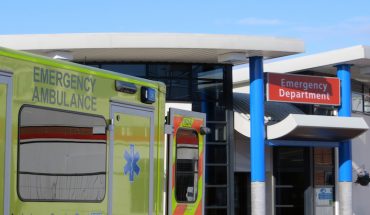Many people with Chronic Obstructive Pulmonary Disease are diagnosed at a late stage of the condition where it has already caused significant damage to the lungs. COPD is an umbrella term which includes chronic bronchitis and emphysema and the single largest cause is smoking.
There are many reasons why diagnosis is late, including the fact that patients themselves may put up with symptoms of breathlessness that come on gradually or think it is just part of growing older.
Around 1.2 million people in the UK are currently diagnosed with COPD, but it is estimated millions more actually have the disease.
If we are going to pick up the problem earlier, when it can be managed most effectively, GPs and primary healthcare workers need to play a vital role in establishing that someone has COPD in the first place. They may need to be proactive when it comes to questioning patients who have mobility issues, or perhaps are already taking medication for other conditions such as asthma, without any relief.
Some people with COPD may receive antibiotics to clear a chest infection when the underlying cause remains undetected.
When a suspicion is raised, doctors need to ensure that they arrange for a patient to have a spirometry test, which needs to be done by a qualified health care professional, such as a doctor or a practice nurse and can take up to 40 minutes. In practice, many patients don’t receive spirometry tests until their symptoms are severe. In our opinion, this is an opportunity missed.
A number of pharmacists have ran pilot programmes to help detect COPD by offering hand-held screening for patients with symptoms, as part of case finding and medicine review and management. This could also help to ensure that people are diagnosed at an earlier stage because pharmacists are in a good position to recognise reoccurring symptoms as they see their patients/customer far more frequently than the GP does.
Once people are diagnosed with COPD they can be given lifestyle advice and treated with appropriate medication. Respiratory diseases are by far the most costly drug spend for the NHS and three of the five prescribed drugs that cost the most to the health service are respiratory inhalers. It is also a concern that less than half of people who take these medications do not get the full benefit because their technique is poor. This is a huge waste of NHS resources and could be prevented if people were given appropriate advice and assistance from the outset.
Some of the most cost-effective interventions do not involve the use of drugs such as pulmonary rehabilitation and support to stop smoking. Since the disease prevention budgets have been moved away from CCGs to local authorities, many smoking cessation programmes have been reduced and in some cases stopped due to a squeeze on funding. In these financially difficult times we need to seize the opportunity to make every contact count, to promote and support patients to quit smoking whether that’s pharmacists, GPs and practice nurses, or in acute hospital care via nurses and consultants.
The earlier we can diagnose people, the sooner they can benefit and the more likely we are to prevent significant long-term disability.
On World COPD Day, the British Lung Foundation is encouraging everyone to take their lung health seriously, to take its simple on-line breath test www.blf.org.uk/breathtest and to visit their GP, if advised.
- COPD – the vital role of GPs - 2nd November 2016






